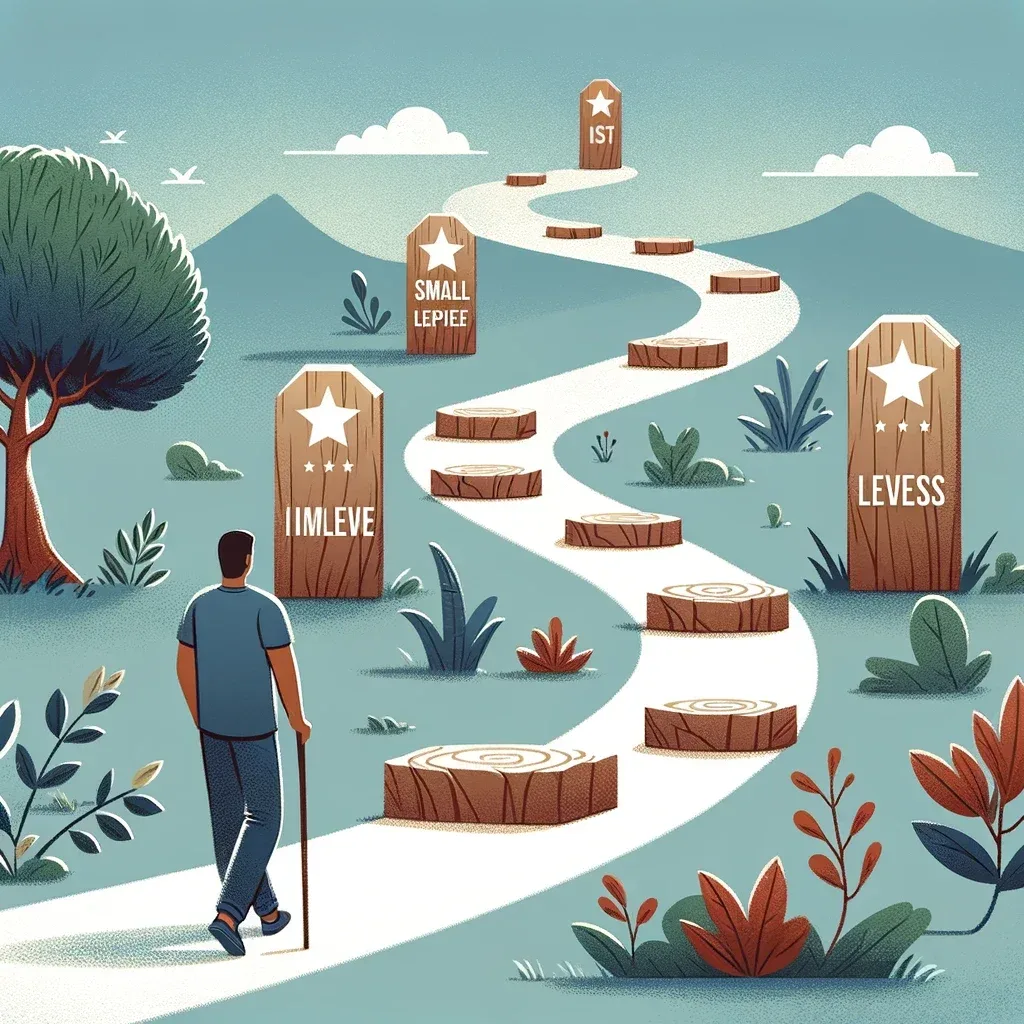Stoicism, a Hellenistic school of philosophy, has proven to be a valuable guide for many in the search for personal and professional improvement. The idea of improving 1% daily may seem modest, but when applied consistently, it has the potential to lead to significant, lasting change. This article explores how stoicism can be used to achieve this continuous improvement.

Foundations of Stoicism

History and Principles
Stoicism was founded in Athens by Zeno of Citium in the early XNUMXrd century BC and quickly gained followers for its practical approach to life. Stoics believe that virtue, defined as living in harmony with nature and reason, is the highest good.
Modern Stoicism
In the contemporary world, Stoicism is re-emerging as a philosophical system that helps individuals face challenges, control emotions and seek a purpose in life. It is a philosophy of life that teaches resilience, self-discipline and clarity of thought.
Key Practices
Among the key practices of Stoicism are daily reflection, control over emotional reactions, and understanding and accepting what cannot be controlled.
Improving 1% Daily

Small Steps, Big Changes
Improving 1% daily involves making small changes or adjustments to habits and attitudes. This incremental approach aligns perfectly with Stoicism, which emphasizes the importance of maintaining consistency in daily practices.
Setting Realistic Goals
In Stoicism, setting realistic and attainable goals is crucial. This not only prevents frustration, but also ensures constant progress. Setting small daily goals that contribute to a larger goal is an effective way to see consistent improvements.
Reflection and Self-Assessment
Daily reflection is a core Stoic practice that allows you to assess progress and adjust course when necessary. Recording thoughts, challenges faced and how they were overcome can be a powerful tool for personal growth.
Applying Stoicism in Everyday Life

Emotional control
One of the main teachings of Stoicism is control of emotions. Learning to respond, and not react, to daily life situations can significantly improve quality of life and interpersonal relationships.
Focus on the Present
Stoicism teaches the importance of living in the present and not worrying excessively about the past or the future. Focusing on current actions and how they can contribute to a 1% improvement is critical.
Acceptance and Adaptability
Accepting out-of-control situations and adapting to them is another key aspect of stoicism. This practice helps to maintain serenity and focus energy on what can be effectively improved.
Benefits of the Stoic Approach

Increased Resilience
By adopting Stoic principles, resilience is strengthened. Challenges are seen as opportunities to learn and grow, which is essential for continuous improvement.
Improved Decision Making
With the practice of stoicism, decision-making becomes more considered and less impulsive. This leads to wiser choices and more beneficial long-term results.
Well-being and Satisfaction
Following Stoic principles can lead to greater well-being and life satisfaction. The pursuit of constant improvement and a focus on virtue contribute to a sense of fulfillment and purpose.
Conclusion
Improving 1% daily with Stoicism is a powerful approach to personal growth. Consistent application of its principles can result in significant changes over time. By adopting practices such as emotional control, reflection and focusing on the present, individuals can achieve lasting improvements in all areas of life. Stoicism offers the necessary tools for this journey of self-development, standing out as a valuable guide in the search for a fuller and more meaningful life.
Frequently Asked Questions About Daily Improvement with Stoicism
Below, we explore the most common questions related to applying Stoic principles for daily 1% improvement.

1. What does it mean to improve 1% daily with Stoicism?
2. How does stoicism help with controlling emotions?
3. What are the main principles of Stoicism?
4. How to set realistic goals in the context of Stoicism?
5. How does daily reflection contribute to personal improvement?
6. How to apply focus on the present in Stoic practice?
7. What are the benefits of the Stoic approach to daily improvement?
8. How to maintain consistency in daily Stoic practices?
9. Can stoicism be applied in professional environments?
10. What are the first steps to start improving 1% daily with Stoicism?
This FAQ provides a comprehensive guide to understanding how Stoic philosophy can be used to drive 1% daily improvement, covering practical questions, fundamental principles, and everyday applications.





